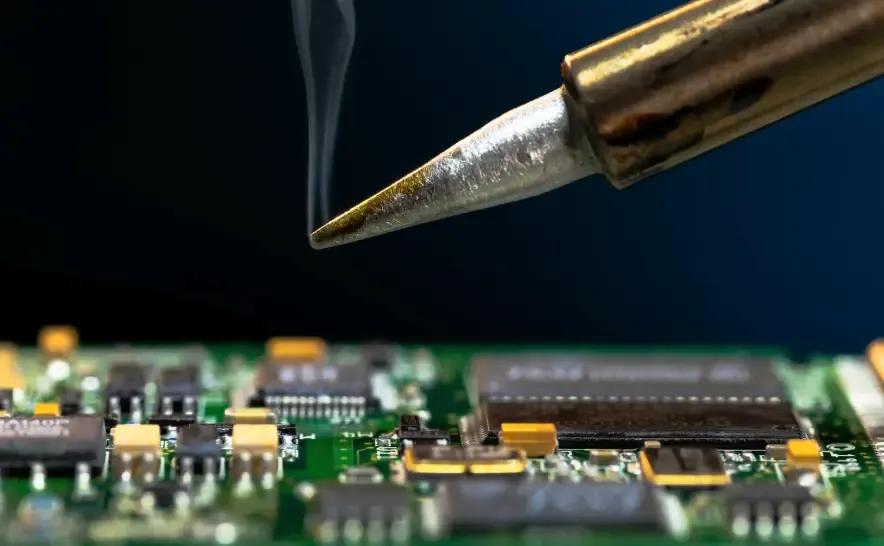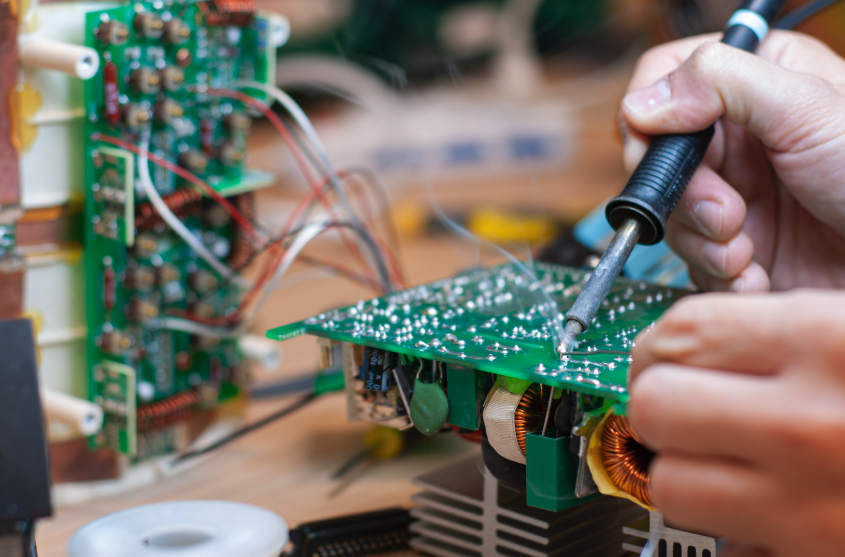Microchip USA Offers Semiconductor Reballing and Retinning Services

More from the Category
In advanced engineering, precision and reliability are mandatory. Components used in these fields must meet stringent requirements to ensure flawless performance in the most demanding conditions. This is where Microchip USA’s reballing and re-tinning services offer a solution that combines technical excellence with cost efficiency.
Reballing and re-tinning are essential processes for adapting electronic components to meet non-RoHS-compliant standards, which are often a necessity for military projects. With these services, organizations can transform RoHS-compliant parts into components suitable for non-RoHS environments — extending their usability while adhering to strict quality requirements.
Microchip USA’s services also present a significant opportunity for cost savings. By sourcing newer, RoHS-compliant parts — which are more readily available and less expensive — and modifying them to meet non-RoHS specifications, customers can reduce project expenses without compromising on quality or reliability.
In this article, we’ll explain our reballing and re-tinning services and certifications, and highlight how they deliver standards compliance and cost-effectiveness for military and engineering projects.
What Are Reballing and Re-tinning?

Reballing and re-tinning are critical processes that ensure electronic components meet the exacting standards required for specialized applications like military and aerospace projects. These services are particularly valuable for adapting components to non-RoHS-compliant environments, where reliability under extreme conditions is paramount.
Reballing: Renewing Ball Grid Arrays
Reballing is the process of replacing solder balls on a Ball Grid Array (BGA) component. Over time, solder connections can degrade or require modification to meet specific compliance standards. Reballing ensures that:
● Components have strong, reliable connections for high-performance use.
● Lead-based solder balls replace lead-free ones to make parts compatible with non-RoHS requirements.
Re-tinning: Restoring Component Leads
re-tinning involves re-coating the leads of electronic components with fresh solder, which is a vital process for renewing older parts and modifying components for non-RoHS-compliant use. re-tinning:
● Prevents oxidation and improves long-term performance.
● Converts RoHS-compliant parts into non-RoHS-compliant components by applying lead-based solder.
Why Non-RoHS Compliance Matters in Military Projects
In military and aerospace applications, non-RoHS-compliant components are essential. While the Restriction of Hazardous Substances (RoHS) directive mandates the reduction of hazardous materials in electronics, its lead-free solder requirements can fall short in environments where maximum durability and reliability are required.
The Importance of Leaded Solder
Leaded solder, which is non-RoHS-compliant, offers several advantages over lead-free alternatives:
● Superior Reliability: Leaded solder is less brittle, which makes it more resilient to thermal cycling and vibration — key factors in systems exposed to extreme temperatures or mechanical stress.
● Extended Lifespan: The enhanced durability of leaded solder reduces the risk of failures, which is crucial in defense infrastructure and aerospace missions.
Bridging the Gap with Re-tinning and Reballing
The availability of non-RoHS-compliant components can be a challenge. Older components with leaded solder are often harder to source, come with older date codes, and command a higher price.
Microchip USA’s re-tinning and reballing services solve this problem by transforming readily available, RoHS-compliant parts into non-RoHS-compliant components — while ensuring the modified components meet the rigorous standards required by military projects.
This approach provides cost-effective alternatives for defense and engineering teams sourcing critical components.
Microchip USA Certifications and Expertise
When working on high-stakes military and engineering projects, quality and reliability are mandatory, which is why Microchip USA places a strong emphasis on its certifications and expertise, to ensure that every reballing and re-tinning service meets the strictest industry standards.
Microchip USA’s commitment to quality is reflected in its adherence to globally recognized certifications:
● AS 9120: A certification tailored for aerospace distributors, emphasizing traceability, quality control, and supply chain reliability.
● ISO 9001: A gold standard in quality management, ensuring consistent processes and customer satisfaction.
These certifications demonstrate Microchip USA’s ability to deliver services that meet the rigorous demands of military, aerospace, and other mission-critical applications.
Cost-Saving Opportunities
In industries where budgets are tightly managed, cost efficiency is as crucial as reliability. Microchip USA’s reballing and re-tinning services offer a smart, cost-effective alternative to sourcing expensive, hard-to-find components for non-RoHS-compliant applications.
Leveraging RoHS-Compliant Parts for Cost Savings
RoHS-compliant components, which adhere to modern manufacturing standards, are often easier to source and are more affordable than their non-RoHS counterparts. Instead of searching for older, leaded solder components with limited availability and higher costs, organizations can purchase newer parts at lower prices, then use Microchip USA’s services to convert them into non-RoHS-compliant components that meet project requirements.
This approach not only reduces sourcing costs but also ensures access to components with better date codes that extend the lifespan of critical systems.
Efficiency Without Compromise
By utilizing re-tinning and reballing, customers can avoid the premium prices associated with aging, specialized components while maintaining compliance with military specifications. This flexibility enables projects to stay on budget without sacrificing performance, quality, or safety.
A Strategic Advantage
For military and engineering teams, these services provide a clear competitive edge:
● Reliable Supply Chains: Access to newer components minimizes delays and uncertainty in sourcing.
● Optimized Budgets: Significant cost reductions allow teams to allocate resources more effectively across their projects.
Microchip USA’s ability to deliver cost savings while maintaining compliance with stringent standards positions us as a trusted partner for clients working on mission-critical projects, so contact us today!









